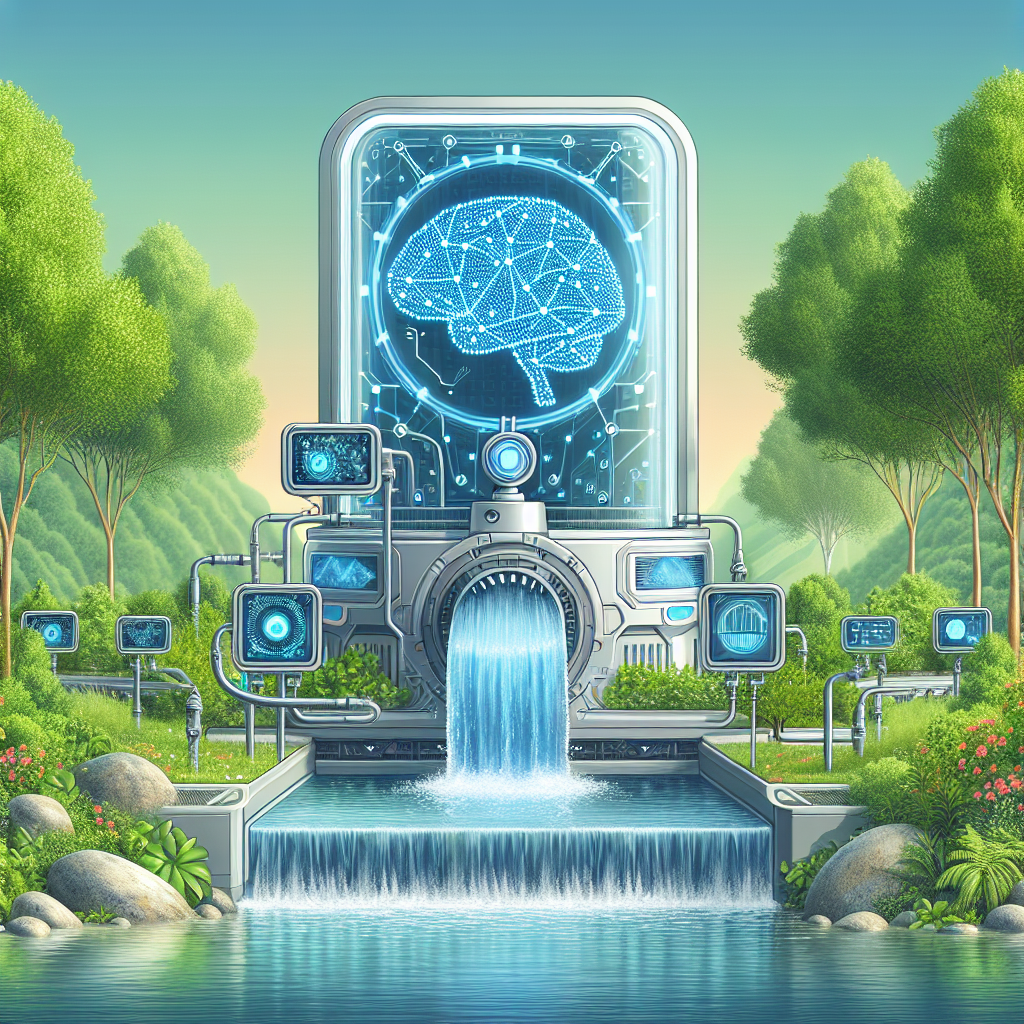Artificial Intelligence (AI) is revolutionizing many industries, and the field of sustainable water purification is no exception. With the increasing global demand for clean and safe water, AI technologies are being used to improve efficiency, reduce costs, and enhance the overall effectiveness of water purification systems. In this article, we will explore some of the key AI applications in sustainable water purification and how they are helping to address the pressing challenges of water scarcity and pollution.
AI Applications in Sustainable Water Purification
1. Predictive Maintenance: One of the key applications of AI in water purification systems is predictive maintenance. By using AI algorithms to analyze data from sensors and monitoring devices, water treatment plants can predict when equipment is likely to fail and schedule maintenance before any issues arise. This proactive approach helps to prevent costly downtime and ensures that water purification systems operate at peak efficiency.
2. Optimization of Treatment Processes: AI can also be used to optimize the various treatment processes involved in water purification. By analyzing data on water quality, flow rates, and other parameters, AI algorithms can determine the most effective treatment methods to achieve the desired water quality standards. This optimization can help to reduce the amount of chemicals and energy used in the purification process, leading to cost savings and a smaller environmental footprint.
3. Contaminant Detection: AI technologies can be used to detect contaminants in water sources more quickly and accurately than traditional methods. By analyzing data from sensors and monitoring devices, AI algorithms can identify the presence of harmful substances such as heavy metals, bacteria, and pharmaceuticals in water sources. This early detection can help to prevent waterborne illnesses and ensure that water purification systems are operating effectively.
4. Real-time Monitoring: AI can enable real-time monitoring of water quality in distribution networks and treatment plants. By analyzing data from sensors and monitoring devices, AI algorithms can detect changes in water quality and alert operators to any potential issues. This real-time monitoring can help to prevent contamination events and ensure that water quality standards are consistently met.
5. Energy Efficiency: AI technologies can help to improve the energy efficiency of water purification systems by optimizing the use of pumps, filters, and other equipment. By analyzing data on energy consumption and system performance, AI algorithms can identify opportunities to reduce energy usage and optimize the overall operation of the system. This can lead to significant cost savings and a lower carbon footprint for water treatment plants.
FAQs
Q: How does AI help to reduce the cost of water purification?
A: AI technologies can help to reduce the cost of water purification by optimizing treatment processes, predicting maintenance needs, and improving energy efficiency. By using AI algorithms to analyze data and identify opportunities for cost savings, water treatment plants can operate more efficiently and effectively.
Q: Can AI detect all types of contaminants in water sources?
A: While AI technologies can detect a wide range of contaminants in water sources, there may be some substances that are difficult to detect using current methods. However, AI algorithms can be continuously trained and updated to improve their ability to detect new and emerging contaminants.
Q: How reliable is AI in predicting maintenance needs in water purification systems?
A: AI algorithms have been shown to be highly reliable in predicting maintenance needs in water purification systems. By analyzing data from sensors and monitoring devices, AI can identify patterns and trends that indicate when equipment is likely to fail. This proactive approach helps to prevent costly downtime and ensure that water purification systems operate smoothly.
Q: How does AI help to improve water quality in distribution networks?
A: AI technologies can help to improve water quality in distribution networks by enabling real-time monitoring and detection of contaminants. By analyzing data from sensors and monitoring devices, AI algorithms can detect changes in water quality and alert operators to any issues. This proactive approach helps to prevent contamination events and ensure that water quality standards are consistently met.
In conclusion, AI applications in sustainable water purification are helping to address the pressing challenges of water scarcity and pollution by improving efficiency, reducing costs, and enhancing the overall effectiveness of water purification systems. By harnessing the power of AI technologies, water treatment plants can operate more efficiently, protect public health, and ensure access to clean and safe water for all.

